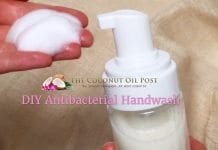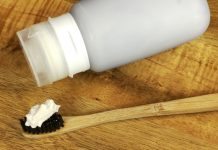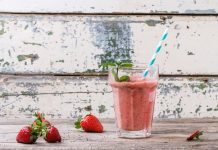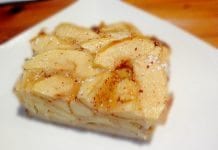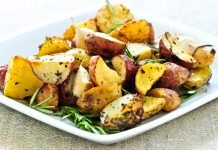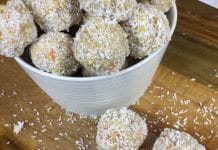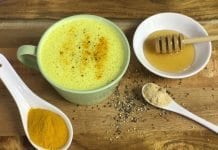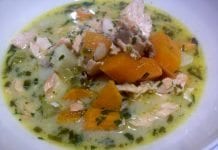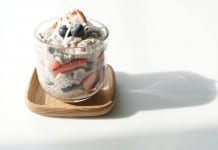Just recently my sister in law and family stayed with us briefly while out on holiday from Sweden. She was telling me the story about her 6 year old son who was suffering with constipation. When he was about 8 months old he contracted a UTI (Urinary Tract Infection) and was given a course of antibiotics for the duration of almost 2 months. No advice was given to her about supplementing him with a probiotic to compensate for almost 2 months of antibiotics either at the time or in the future. Earlier this year he had another course of antibiotics and not long after developed constipation.
What makes for good Digestive and Colon Health in Children?
Remember it only takes one course of antibiotics to cause problems in the intestines. These problems can be aided with a good success rate if acted upon quickly. Probably the most pressing issue is finding ways of serving up some of the remedies and foods that will assist with digestive and colon problems in children.
When treating bowel or digestive problems there are four important ingredients that must be included on a daily basis.
- Fibre
- Water
- Coconut Oil
- Probiotics
Fibre – both soluble and insoluble are a necessary part of our daily diets. It’s essential for the health of our digestive system and colon that we have plenty of fibre. Basically fibre creates bulk in our colon acting as a brush as it gathers and passes through. We can get both soluble and insoluble fibre from fruit and vegetables as well as whole grains and seeds. Other great sources of fibre are chia seeds and coconut flour. Chia seeds are easy to use and you can make some fun things with them because of the wonderful gel action that forms when added to liquid. Coconut flour has over twice as much fiber as wheat bran and four times as much as oat bran.
Read more: Coconut flour – a great alternative to wheat
Water – Drinking lots of water is another essential for healthy living but also will assist with problems like constipation. In order for the bulk to pass through the colon with relative ease, the stool needs water to keep it soft. Try to avoid giving children lots of fruit juice. Fruit juice is basically drinking the sugar/fructose from the fruit and missing out on the goodness of the fruit. It’s better to give them a piece of fruit instead and a drink of water.
Coconut oil – Oils like olive, castor, flax and even fish oil can all be used for treating constipation. Taking the oil internally acts as a lubricant to the digestive system and colon. The lubricating action will clear the debris that gathers on the wall of the colon helping the stools to pass through with more ease. The advantage of using coconut oil is that it has a better taste than most other oils and can be mixed with alot of other foods. It also has many benefits such as antibacterial, antiviral and anti fungal, making it a great oil for treating the gut lining and digestive tract as well as the colon.
Probiotics – Whether your digestive problems have been caused by antibiotics or not, probiotics are an essential for any ones diet. Basically probiotics are the good bacteria that our digestive tracts and intestinal tracts need to fight off all the bad bacteria that build up and sometimes overtake causing yeast overgrowth, thrush or candidiasis. There are so many ways of getting these good bacteria into your diet.
Fermented vegetables, kefir and yoghurt are all great ways that you can eat probiotics and they are not hard to make. Then there is supplements like Inner Health Plus that you can buy in powder or capsule form from any good health food shop or chemist.
Here are some of the recipes that we made up during my sister in law’s visit.
Lemon Coconut Drink:
1/2 squeezed lemon juice
warm filtered water
1 teaspoon coconut oil (increase over weeks to get to 1 tablespoon)
Stevia to taste
Drink first thing in the morning before any food.
Coconut yoghurt:
250 grams good quality plain or greek yoghurt (preferably organic)
1 tablespoon of coconut oil
Stevia to taste
Mix all together and use plain or add some coconut flakes or a small amount of chopped fruit.
Bowel Biotic: You can buy from most good health food shops or through this link
This needs to be taken a few times a day. It has a pleasant enough flavour so children shouldn’t find it difficult.
Other things that you can try:
Chia gel: Mix 1 tablespoon of chia seeds with 9 tablespoons of water. Stir it a couple of times over a period of 1/2 an hour and pop in a glass jar or container in the fridge. You can use the gel for all sorts of things. Stir it through yoghurt, pop it in baked goods (it can be used as an egg replacement) or smoothies.
Here’s a great recipe for Banana Chia Pudding
Coconut flour: This is a versatile flour that can be used as a gluten free alternative for baked goods or use it as a thickener in soups, casseroles, meat dishes and smoothies.
Here are some links to recipes using coconut flour:
Gluten Free Coconut Sweet Bread
Digestive and Colon Health in Children – Foods to avoid if suffering constipation or digestive problems
There are foods that will definitely hinder digestive and colon problems in children and can often cause the problem in the first place. Sometimes children can develop food sensitivities and allergies as a secondary condition to digestive problems. If you suspect that your child has such sensitivities or allergies it can help to do an elimination diet by simply taking out the foods you think may be the trigger for a period of time and then reintroduce them 1 by 1 so you can measure the possible reactions that the child might have.
The following list are foods to avoid or at least minimise while treating for constipation and digestive problems:
- White flour
- Processed sugar
- Fruit juices
- Cordial and soft drinks
- Processed foods such as packaged biscuits, cakes, bread products.
- Crackers and chips
Instead of these items you could try:
- Whole Wheat flour or coconut flour as a gluten free alternative
- Xylitol, stevia, coconut palm sugar or rice malt as an alternative to processed sugar
- Water or mineral water flavoured with Chlorophyll or make a homemade lemonade in replace of fruit juices and soft drinks
- Home baked biscuits, cakes and breads made without processed sugars and additives are far better than the packaged alternatives
- Try using vegetables sticks and popcorn or try some toasted flaked coconut or activated nuts to replace the crunch of crackers or chips.
What to remember from this article:Increase dietary fibre and water intake.Incorporate coconut oil into your child’s diet.Add more vegetables to each meal.Add small amounts of whole fruit at snack times or as a dessert.Avoid overly processed foods, sugars, white flour and sugary drinks.
Hope this has helped. If the problem continues it’s wise to see a doctor or practitioner for further advise.



